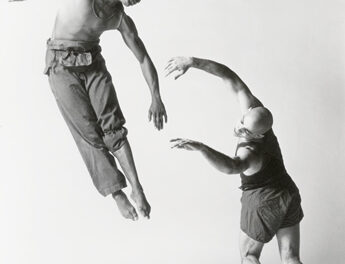Every year, the final concert of the UNCG Symphony Orchestra features winners of the school’s February competition. Conductor Robert Gutter usually has a program of complete works selected from less-often-played items of well-known composers and some really esoteric fare. The May 3 concert in Aycock Auditorium met that formula in spades. He said that 39 contestants had been winnowed by faculty judges to the six solid musicians heard on this concert. Between pieces players were added or exchanged within the orchestra so everyone had a chance to play.
Rossini’s Barber of Seville Overture received a well-conceived and nicely-executed performance led by guest conductor Frédéric St. Pierre, who is completing a masters degree in music. The balances were excellent although the percussion was a bit exuberant. The slow introduction unfolded at a natural tempo, and the fast portions were never rushed. The oboe solos were lovely and, after some tentativeness, the horns were, too. An accomplished violinist, St. Pierre was recently appointed to a section position with the Greensboro Symphony.
Crystal Medina, a student of GSO Principal Clarinet Kelly Burke, performed the Clarinet Concerto, Op. 11, by Bernard Crusell, a composer whose music I had read about but not heard. The Finnish wind player and composer was born in 1775 and died in 1838. He was a clarinetist in the court orchestra, and he composed a lot of music for his fellow wind players. According to Fabian Dahström, writing in New Grove II, contemporaries praised his “tone and in particular his pianissimo.” He experimented with playing with the reed turned upwards and downwards, the latter favoring cantabile playing. With extraordinary breath control, Medina spun a flowing and seamless singing line. The dynamics were well chosen, and the trills came off marvelously. The orchestral writing was more interesting in the lively second movement, a polka, wherein there are dialogues between the soloist and first violins and some attractive passages that were well played by the horns.
Neither Google nor New Grove II turned up anything useful about Alfred Desencios (1912-71), whose “Prelude, Cadence et Finale” for saxophone was given in an orchestrated edition by Russell Peterson. Alto saxophonist Brandon Tesh, who studies with Steve Stusek, played with seasoned professional aplomb. His control and phrasing seemed effortless, and along the way there were some gorgeous, long-held notes. This was hardly surprising since his bio reveals that he worked with Branford Marsalis on the production of two upcoming albums.
Dante envisioned the Circles of Hell where sinners receive eternal tortures; my vision of Hell has tiers with demons applying endless “vibrato” to members of the xylophone and marimba families. They’re not my idea of nectar. Like a Stoic, I braced myself for “Gate to Heaven (A Journey of the Soul)” (2005), composed by David Gillingham (b.1947) and orchestrated by Nathan Daughtrey. The composer is Professor of Theory and Composition at the School of Music, Central Michigan University. At times, his score reminded me of the minimalism of John Adams or Phillip Glass, if only fleetingly. Stark, harsh chords are combined with dirge-like writing for strings that evokes Gregorian chant. Many musical figures are repeated at length. Compared with most marimba works I have heard, the composer was sparing in his use of tremolos. Bachelor of Music candidate Michael Ptacin was the outstanding soloist, securing a wide palette of timbres using three different types of mallets – the soft-covered mallets produced deep and profoundly resonant tones – and, briefly, a violin bow, used to create a delicate, eerie effect.
French Melodies are rare enough on voice recitals, so to hear a set displayed with full orchestral raiments was a treat indeed. In view of mezzo-soprano Stephanie Foley’s remarkable recent achievements as Mallika in the UNCG production of Delibes’ Lakmé and her eleventh hour substitution as the vocal soloist in a GSO performance of Prokofiev’s Alexander Nevsky, her performance of songs by Ravel was eagerly anticipated. She brought a fine sense of line and clear enunciation to the broad range of textures in the composer’s Cinq melodies populaires grèques. Her nuanced dynamics and firm projection of the words were ably supported by Gutter’s perfectly-balanced and idiomatically-phrased accompaniment. Her application of vibrato sometimes verged too near the upper range of performance tradition. Foley, a student of Robert Wells, received her Master of Music in Vocal Performance this month. I am sure her already-impressive résumé will rapidly grow.
A rousing rendition of Beethoven’s Choral Fantasy, Op. 80 brought the audience to its feet, making for a splashy finish for the evening. Some forty or so members of UNCG’s choral ensembles had been well rehearsed and delivered their portion with perfect clarity. Juan Pablo Andrade, a student of John Salmon, brought fire and rock-solid technique to the extended and very exposed piano part. Guest conductor Matthew Troy reined in his forces to deliver a coherent and stylish recreation of a work that anticipates the much later Ninth Symphony. This was a richly satisfying evening with an attractive menu of works executed by talented artists at the beginning of their professional careers.
Note: Paragraph 5 edited and corrected 6/17 in response to reader inputs. CVNC appreciates and welcomes feedback at any time and is grateful for it.











